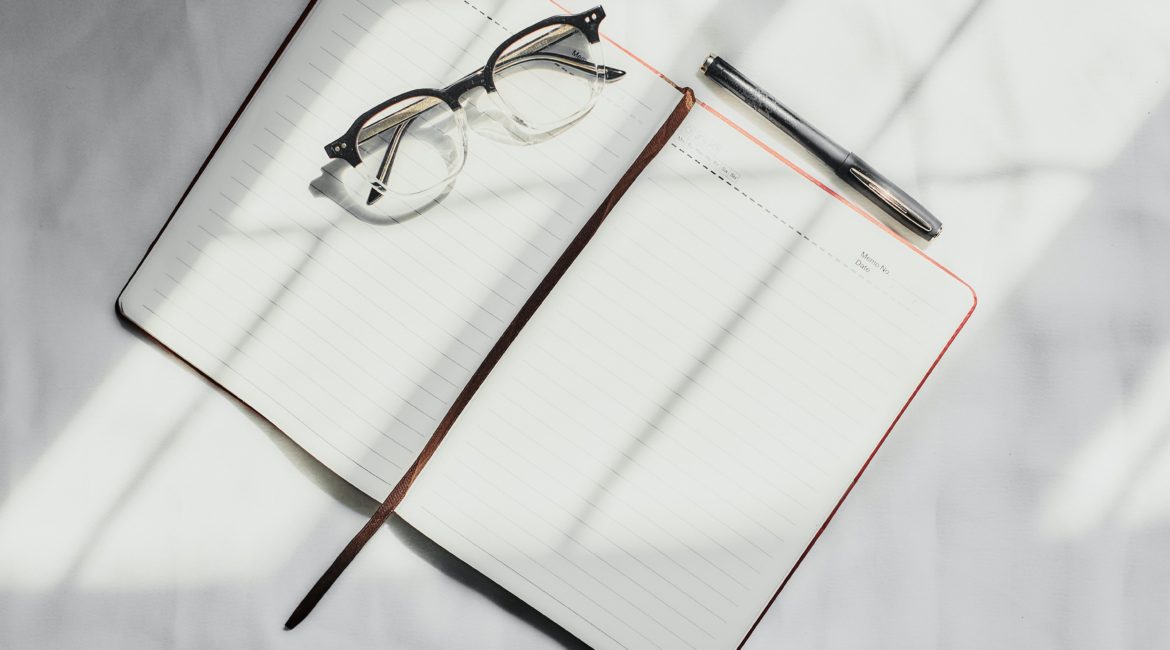If the idea of journaling conjures up images of childhood diaries with “KEEP OUT” stenciled on the front cover in permanent marker, it might be time to rethink it.
Journaling has grown in popularity over the past years. Some of the greatest thinkers of all time have kept journals, such as Leonardo Da Vinci and Marie Curie.
If you are looking to start incorporating intentional journaling into your day, we’re here to break down the best methods for doing so, and why it is such a game changer.
Why You Should Keep A Journal:
The concept of keeping a journal is certainly nothing new. Therapists and mental health professionals have long encouraged clients to write down their thoughts and feelings. With good reason, too. Studies have shown that journaling can have a positive effect on your mental health, such as helping to manage anxiety and reduce symptoms of depression.
Keeping a journal allows you to create a safe space for yourself where you can express yourself without judgment. Sometimes just putting pen to paper can help clear our minds. Additionally, though, a journal is a powerful written record that you can refer to help identify negative patterns, thoughts, and behaviors that you might be engaging in. Over time, you can use this information to make positive changes in your life.
How To Journal:
You don’t have to start each entry with a classic “Dear Diary.” These days, there are many different methods and journaling styles. Here are a few of our favorites.
Bullet Journal
Bullet journals are perfect for those who have an artistic side. This journaling method, developed by Ryder Carroll, is a highly personalized journaling experience. Bullet journals can function as a diary, planner, and goal tracker all in one.
A typical bullet journal breaks down your journal into daily, weekly, and monthly sections. This helps you have a clear vision of your goals and projects and allows you to reflect on what it will take to accomplish them. Advocates of bullet journaling claim that it helps boost productivity, mental clarity, and mindfulness.
Line A Day Journals
If keeping a consistent journal seems a bit overwhelming for you, consider keeping a Line A Day Journal. These journals only require you to write a few lines, reflecting on your day. It takes no more than a few minutes to get done. This method allows you to prioritize and pinpoint exactly what the most important event or emotion of your day was. It also gives you a neat way to look back through the years and see what life was like two, three, or even four years ago.
You can do this method in any style of notebook, or by a dedicated book like this.
Gratitude Journal
Many people swear by the life-changing practice of keeping a gratitude journal. Oprah Winfrey, in particular, has been very vocal about the benefits.
Gratitude journaling involves creating a list, each day, of things you are grateful for. It does not have to be a long list, but it should be part of a daily practice. The point is to shift your attitude away from negative thoughts and emotions by taking conscious time out of your day to find both little and big things to be grateful for.
Dream Journaling
Our subconscious can tell us many things about what is really on our minds. Keeping track of your dreams is a great way to get to the heart of what is bothering you.
Oftentimes, our fears, anxieties, and hopes are represented in our dreams. Writing your dreams down, each morning is a great way to tune into what the dominant thoughts in your mind are. It is also interesting to note how those thoughts manifest. You might find that you learn more about your triggers and deepest wants by keeping track of these.
Traditional Journaling
For most people, traditional journaling is their favorite. There are no set rules on how to write and what to write about. You could write about what you did during your day, or simply about what’s on your mind. Many find they do best when they allow themselves to write in a stream of consciousness style, not judging what comes up.
Like all journal styles, this is most effective when it is practiced every day. The key is to train your mind to release all your thoughts and worries so that you can move on with your day with much more mental clarity.
Have you tried journaling? What form worked best for you? Share with us in the comments below!






